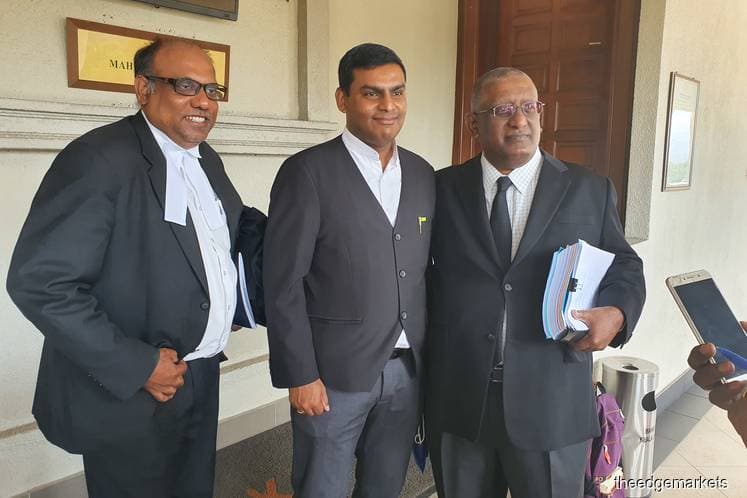
KUALA LUMPUR (Jan 15): The constitutionality of the imposition of a departure levy on international travel by the government since Sept 1 last year will be decided by the High Court on Feb 27.
This follows the submission to the originating summons filed by lawyer R Kenghadaran, who named the Finance Minister and the government as defendants in the suit heard by Justice Datuk Seri Mariana Yahya today.
The levy imposed is between RM8 and RM150, where an RM8 charge is imposed on those travelling within Asean countries on economy class and RM50 for business class. Meanwhile, a RM20 charge is imposed on those travelling to countries outside Asean on economy class and RM150 for other classes.
Kenghadaran, who is represented by A Srimurugan and Jeyaseelan Anthony, is seeking a court declaration that the Departure Levy Act 2019 and its subsequent order is unconstitutional as it is against his constitutional and fundamental liberties to travel freely and should be declared null and void.
Senior federal counsel Suzana Atan told the court the right to travel abroad is not a constitutional right as the government could impose restrictions in the form of taxes.
She further told the court that the Departure Levy Act 2019, which was gazetted in July last year after it was tabled in November 2018, is good law based on Article 96 of the Federal Constitution.
Article 96 stipulates that no tax or rate shall be levied by or for the purposes of the Federation except by or under the authority of federal law.
Srimurugan said Article 96 can be unconstitutional if it violated the civil liberties of Malaysians as it deprives a person of his liberty partially and infringes fundamental rights.
"The phrase 'personal liberty' in Article 5(1) of the Federal Constitution should be read prismatically and liberally, it encompasses the right to travel abroad," he said.
He added that the government's reliance on the Lee Kwang Woh case in citing restrictions can be imposed on right travel is certainly bad law as that case was decided based on an appeal by the winning party that was the government.
"Furthermore, the Lee Kwang Woh case is over 40 years ago and does not take into consideration of present circumstances.
"The court should adopt a liberal approach as expounded in the M Indira Gandhi and the Alma Nudo Atenza cases that is recently decided by the Federal Court which provides a liberal and non-restrictive approach to constitutional rights," Srimurugan added.
theedgemarkets.com reported on Aug 2 last year that AirAsia Group Bhd and the International Air Transport Association (IATA) — a grouping of 290 airlines including Malaysia Airlines and Malindo Air — had been urging Malaysia to reconsider the imposition of the departure levy on air travellers leaving the country.
Based on IATA's analysis, the introduction of the levy would reduce the number of international air passengers departing from Malaysia by up to 835,000 per year, decreasing the aviation sector's gross domestic product contribution by up to US$419 million and see a reduction of up to 5,300 jobs.
Malaysia is not the first country to impose a departure levy. Travellers leaving Japan now pay a "Sayonara levy" of 1,000 yen (RM36), while those flying out of Singapore will have to pay S$47.30 starting July 1, 2018, up from the current RM34.